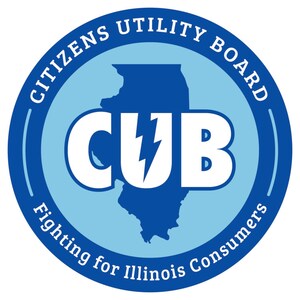CUB Alerts Illinois Consumers About Free Guide, As More Than 200 Communities Plan April 9 Electricity Referenda
CHICAGO, April 1, 2013 /PRNewswire-USNewswire/ -- As more than 200 Illinois communities prepare to hold April 9 referenda asking residents if they want local leaders to negotiate power prices with ComEd and Ameren competitors, the Citizens Utility Board (CUB) on Monday alerted consumers about a free guide to help people make an informed vote.
CUB's Guide to Municipal Electricity Aggregation is at www.CitizensUtilityBoard.org.
"Electricity choice must be an informed choice," CUB Executive Director David Kolata said. "Whether you vote for or against municipal aggregation, you should be armed with the facts and that's why CUB created its Guide to Municipal Aggregation."
Since late 2010, about 470 local or county governments have passed referenda to allow them to negotiate electricity prices with unregulated power companies on behalf of residents. According to the Illinois Commerce Commission (ICC), about 230 more communities have municipal aggregation referenda on the April 9 ballot.
Municipal aggregation is based on the idea that there is strength in numbers. It takes a "Costco" approach to buying electricity. Just as the wholesale warehouse chain can secure lower prices for items such as TVs by buying in bulk, the theory is that community leaders could negotiate lower electricity prices by using the collective buying power of their residents and small businesses (businesses using no more than 15,000 kilowatt-hours a year).
CUB's guide includes key information every voter should know, including:
You don't have to take part in community aggregation. Even if you vote for aggregation and your community passes a referendum in favor of it, you will not be required to sign up with an alternative electricity supplier. You can opt out of the program.
Aggregation does not mean you will avoid utility rate hikes. It just means a different company is supplying your electricity. Your utility—Ameren or ComEd—will still charge you for delivering the power to your home. Those "delivery" rates are what go up when the ICC grants utility increases. So, even if you participate in aggregation, you will still get billed for those "delivery" charges, along with the alternative supplier's charges.
Focus on the price and the term of the offer. If your community passes an aggregation referendum, find out exactly what a potential power supplier is offering and how it compares to the price of ComEd or Ameren. The guide gives consumers the current "price to compare" for the utility companies. In recent years, utility power prices have been tied to long-term, higher priced contracts, but the last of those are set to expire by June 1 and utility prices are expected to drop. Some communities have negotiated a promise from an alternative supplier to meet or beat the utility's price over the length of the contract. Ask local leaders if they plan to do the same.
Find out if the alternative supplier charges an exit fee. If your community launches an aggregation program and you want to participate, read the fine print of the proposed offer. Find out if you are locked into a rate for a certain period of time, and if the alternative supplier will charge you an exit fee if you want to get out early.
What happens at the end of a contract with an alternative supplier? If you participate in aggregation, read the fine print to see what happens at the end of your contract. By that time, the new alternative supplier offer may not be a good deal compared with the utility price.
CUB is Illinois' leading nonprofit utility watchdog organization. Created by the Illinois Legislature, CUB opened its doors in 1984 to represent the interests of residential and small-business utility customers. Since then, CUB has helped save consumers more than $10 billion by blocking rate hikes and securing refunds. For more information, call CUB's Consumer Hotline at 1-800-669-5556, or visit www.CitizensUtilityBoard.org.
SOURCE Citizens Utility Board
WANT YOUR COMPANY'S NEWS FEATURED ON PRNEWSWIRE.COM?
Newsrooms &
Influencers
Digital Media
Outlets
Journalists
Opted In





Share this article